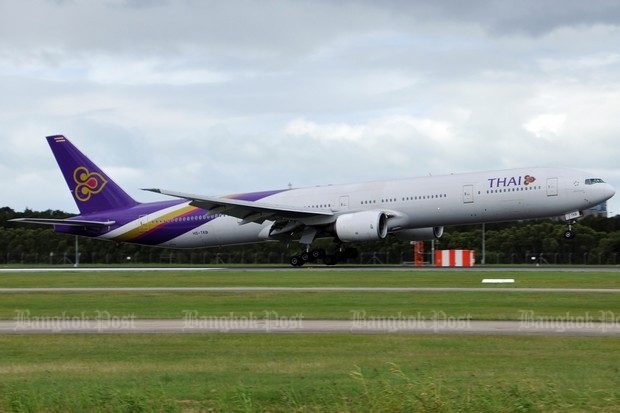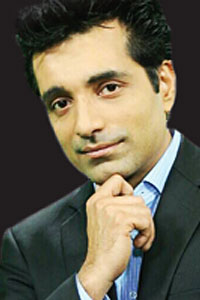
The latest corruption scandal involving the procurement of aircraft engines by Thai Airways International Plc (THAI) comes as no surprise to many of us who have been watching how the national carrier has operated over the years.
As revealed by UK authorities, British engineering giant Rolls-Royce admitted to bribing agents of the Thai state and employees of THAI. Spanning a course of eight years, from 1991 to 2005, the scandal involves kickbacks totalling 1.28 billion baht -- allegedly paid to help the British firm secure deals with the carrier.
With an array of 14 different kinds of aircraft and a relatively small fleet of about 90 planes, THAI has lived with the headache of operating and maintaining a combination of different engines required for different types of aircraft. It is one of the biggest challenges facing the carrier's various presidents tasked with lowering its soaring operating costs.

Umesh Pandey is Editor, Bangkok Post.
Compare this to the other airlines under the "Star Alliance" club of which THAI is also a member and you will see the other carriers do not have to bear the burden of having too many types of aircraft. For example, Singapore Airlines uses seven different aircraft types for its fleet of 108 planes while Turkish Airlines uses 13 (including two types used for its cargo services) for its fleet of 333 planes.
Having a wider range of aircraft and engine types means a greater maintenance burden. Each aeroplane and each engine needs different sets of spare parts and different teams of mechanics. This is on top of the fact that there is a need for different kinds of pilots and more training for flight attendants.
THAI's previous president tried to curb these cost overruns, but it seems he was unable to do it for some reason or another.
Incumbent president Charamporn Jotikasthira pledged to bring the number of aircraft down from 130 when he took the job two years ago. He has done a decent job but there was deadlock when it came to implementing his plans such as cutting the number of staff and type of aircraft engines.
The goal was for the airline to be able to get rid of gas-guzzling aircraft such as the Boeing 747-400, some of which were sold last year. But a trip to Suvarnabhumi airport earlier this month showed me that four-engine 747s were still taking off and landing.
Mr Charamporn had set a target of 20% reduction in costs last year which also required fewer aircraft types and the streamlining of engine types, among other things. The airline has said that in the past its operational and maintenance costs were 6% higher than its peers for each aircraft.
Despite all the efforts made over the past two years, the airline's cost has dropped only marginally. The burden will fall on the next president. Achieving cost reduction has been a problem for THAI because of various vested interests.
What has not been talked about publicly is how politically sensitive this airline is. It is known to many that free seats or class upgrades have been offered to some privileged people.
The revelations by the authorities in the UK have prompted the National Anti-Corruption Commission (NACC) to examine the case. Even though the statute of limitations for the case has not yet expired, we can only hope Thai authorities act fast and effectively to find the culprits. Several previous corruption scandals had not dug up any evidence.
Although it has been nearly two decades since the incident took place, the NACC should at take the lead in pursuing the case and working with other agencies.
It is high time the NACC and this military government demonstrate their seriousness and ability to not just find the wrongdoers at the carrier but also other state agencies involved in facilitating the procurement of the engines.
Any corruption at this and other large state enterprises must not be tolerated.
This government has been using its "special" powers to do many things even though they should not be its top priorities. Think about how the government has spent time and resources trying to solve micro-problems like re-organising how passenger vans should be operated and one can only sigh in frustration.
More needs to be done to root out corruption -- the scourge of the country that has led the military to stage past coups.
The 1.28-billion-baht bribery scandal came to light after many years in the shadows. If it were not for the revelations in the UK, it could have been buried. Bringing those who demanded and received the kickbacks to justice will make sure other state agencies and state enterprises realise that graft is no longer business as usual in this country.
